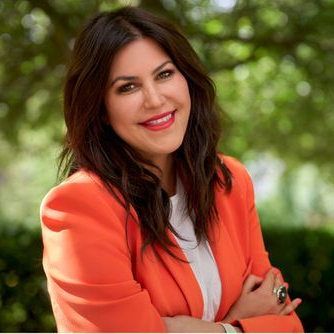For many people, with each passing day, the future is becoming more and more uncertain.
And as the world wide lockdown continues, companies are dealing with unimaginable challenges which could impact their future success (or failure).
The impact of Covid-19 will be felt far and wide, from the senior executives at Fortune 500 companies, new grads just starting their careers, to health care and essential workers – everyone will be affected in some way, big or small.
Now more than ever, leaders need to step up. Not just for themselves and the future of their business, but for their teams and the individuals within them. We know that many leaders are woefully unequipped to deal with even normal work challenges.
”77% of organisations felt that they are currently experiencing a gap in leadership skills.”
In 2019, the Human Resource Professionals Association reported that 63% of millennials felt their leadership skills are not being developed, and 77% of organisations felt that they are currently experiencing a gap in leadership skills. Within our corporate audits we have seen a similar theme, with the majority of managers and leaders we spoke to commenting that they have received little to no training on how to best manage their teams.

So how can we expect leaders to step up when they don’t have the necessary skills or behaviors in place? It is critical for business leaders to be there for their teams, helping them stay informed, giving them the space to be heard, and keeping them motivated and engaged.
During this time especially, it’s becoming more and more apparent that we need to be upskilling managers and leaders, or it could have much larger implications on the overall business and team motivation. Afterall, their role is not to own their teams, leading with fear and aggression, but to guide their teams in the right direction using trust and clear communication to show them the way.
Arjen Boin, a Political scientist at Leiden University in the Netherlands and co-author of ‘The Politics of Crisis Management’, has spent many years studying how leaders responded to previous emergencies. He found that one of the most important determinants of followers’ trust, was down to the leader’s messaging around the crisis.
He writes: “Effective crisis leadership cannot be brought about by simply doing the ‘right thing’ on the ground, Instead, the leaders need to craft a good narrative that helps clarify the problem and unite the population if they are to attain the “permissive consensus” that is essential to be able to make decisions and formulate policies”

Over the past few weeks, Gallup has been running weekly comparative surveys to gauge how people’s feelings and beliefs are changing as Covid-19 runs its course. They found that Organisations are becoming more clear in their internal communications, with 52% for respondents saying their employer has communicated a clear plan of action, up 15% from mid march. The percentage of full-time employees who strongly agree that their manager is keeping them informed on internal matters has also increased from 47% to 54%.
This shows that many company leaders are realising that if they want to survive they need to improve communication. However many organisations are lagging behind, with roughly half of respondents saying that their company hasn’t communicated a clear plan or kept them informed, so there is still work to be done.
Managers and supervisors need to be setting clear expectations, adjusting goals, helping everyone feel connected, creating accountability, and recognising those who are doing great work. In a time of uncertainty, it is imperative that leaders keep their teams anchored to the company’s purpose and values. This is the time to come back to those values to inspire your employees and show them what the future can still look like.

Gallup’s most recent leadership research found that there are 4 key things individuals need from their leaders – trust, compassion, stability, and hope. Leaders must build trust with their teams and show compassion, focussing on protecting their employees wellbeing and leading with purpose throughout this period and beyond.
A great example of leadership during a crisis can be found within one of the largest hotel chains in the world. In March, Marriott CEO Arne Sorenson sent a video to the entire Marriott team that was genuine, emotional, and honest – demonstrating to his team how much the company cares about their wellbeing and peace of mind. Sorenson shared a clear, concise message that showed the optimism they have for the future, while also informing them on what is being done to face any and all challenges that arise.
PUSH Leadership Coach Tamson Amara spoke about the struggles leaders are facing, on our regular webinar, Conversations with Cate;
”A skillful leader is able to be honest about their own experience and communicate this to the team.”
“Even leaders have disappointments, setbacks and frustrations to process. A skillful leader is able to be honest about their own experience and communicate this to the team. For instance, asking the team to bear with them if they are feeling overwhelmed and need space to assess and respond with clarity and direction. A concept that supports this process – especially in times of uncertainty – is ‘holding’.
‘Holding’ focuses teams on what is controllable NOW! It directs focus and effort. Communicating this position may involve re-purposing. For instance, if the purpose of a sales team is to generate revenue, in times of uncertainty holding could mean switching focus from pushing new campaigns to building up the quality of relationships with clients. Simple, clear messages to support this process go a long way in settling the team and allowing leaders space to respond with longer term strategy,”

So the question is, how can you support your team better throughout this time? How do you lead with trust, compassion, stability and hope?
John Quelch, the Leonard M. Miller University Chair Professor and Vice Provost for Executive Education and Dean of the Miami Herbert Business School at the University of Miami, shared leadership principles to help managers survive this time.
- Stay Calm – everyone will be looking to you as a leader to project a sense of calm amongst the uncertainty.
- Be Confident – you need to project the confidence that you will be able to see this through successfully.
- Communicate – in this ‘fake news’ world, it is imperative that you communicate relentlessly to avoid rumors from developing. However a sense of order is also needed to allow for rapid, clear communication as decisions are made.
- Collaborate – you aren’t going to know all the answers, and it’s important to call on all of your resources. Engaging employees in this way will also discourage a rumour mill.
- Create a Community – it is more important than ever to create a friendly and helpful environment where the team feels supported and cared for.
- Be Compassionate – in a time of crisis this is vital for leaders, be understanding about how it is affecting your team individually, especially when everyone has their own anxieties and stressors coming up.
Crucially, now is the time to upskill your leaders to help them be more conscious, supportive and human. PUSH’s inaugural e-learning programme does exactly that. It has been designed to help leaders and even more junior team members develop better behaviours. This will get everyone working at their best. We call the programme ‘Becoming Superhuman’ as it considers all of the core skills and behaviours needed as a great leader, both of self and others.
If this situation has taught us one thing, it’s that success and peak performance go beyond just sheer hard work. Sometimes it’s the softer skills which make the greatest difference to hard measures. So, now is the time to do something different. Now is the time to step up. To be a great and truly conscious leader, and start operating in new and innovative ways so that our businesses and people not only survive but thrive.
Helpful Resources
- The Samaritans: Support & Info during Coronavirus
- Public Health England: Guidance for the Public on Mental Health and Wellbeing
Up to date Info on Corona

more articles by Cate Murden


